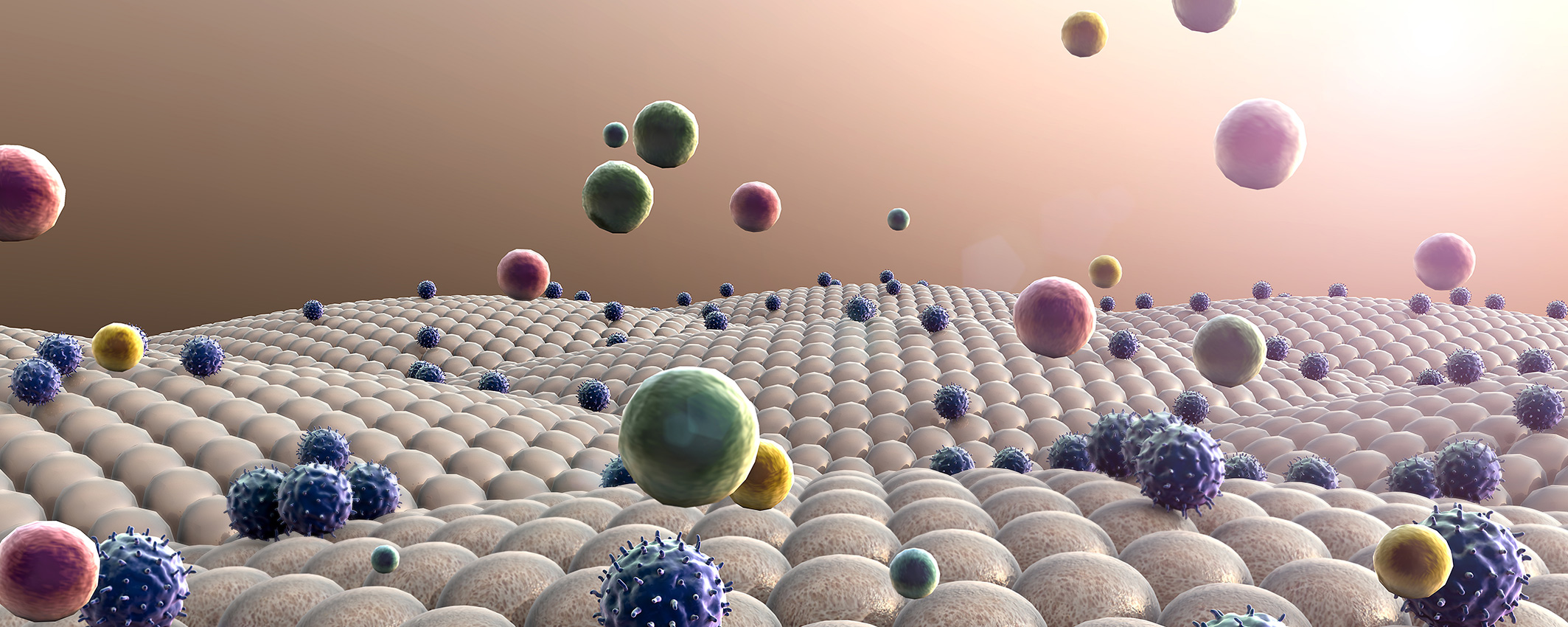 |
CCST9063 Science, Technology and Big Data
|
Course Description
Microorganisms are very small organisms that often can only be seen under microscope, but that form communities in many parts of our body and play important roles in maintenance of our health. While some microorganisms are capable of causing diseases, the vast majority of them can co-exist with us in harmony and some even have positive effects on our bodies. Most interestingly, the microorganism composition within each person is unique, similar to a fingerprint. In this interdisciplinary course, we will cover: 1) the types of microorganisms that can be normally found within our body; 2) the importance in the maintenance of a balanced microbial community within our body for a healthy life; 3) how modern medicine and lifestyles can affect our microbial community and hence our health; 4) current opinions in using microorganisms and microorganism-derived compounds as therapeutic agents from both Western and traditional Chinese medicine point of views; 5) introduce some basic tools to study and identify disease-causing microorganisms; and 6) explore some controversial issues in the prevention and management of infectious diseases. Throughout the course, we will move back and forth between areas of scientific knowledge and the student’s own experience of an intimate “community” beyond “normal” perception.
[There will be a 3-hour field trip and a 1-hour lap tour (tentatively) scheduled for Saturday afternoon during Reading Week which are compulsory.]

Course Learning Outcomes
On completing the course, students will be able to:
- Demonstrate understanding of the interaction between microbes and humans.
- Understand the beneficial effects of microorganisms in our daily life.
- Balance the risk and benefits of vaccination and antibiotic administration.
- Understand the importance of maintaining a balanced microbe community within our body.
Offer Semester and Day of Teaching
Second semester (Wed)
Study Load
| Activities | Number of hours |
| Lectures | 20 |
| Tutorials | 8 |
| Fieldwork / Visits | 10 |
| Reading / Self-study | 47 |
| Practicals | 8 |
| Assessment: Essay writing | 25 |
| Assessment: In-class test | 2 |
| Total: | 120 |
Assessment: 100% coursework
| Assessment Tasks | Weighting |
| In-class test | 33 |
| Essay | 33 |
| Tutorial participation | 34 |
Required Reading
- Benzie, I. F. F., & Wachtel-Galor, S. (2011). Herbal medicine: Biomolecular and clinical aspects (2nd ed.). Boca Raton (FL): CRC Press/Taylor & Francis. [Chaps. 14-21]
- Goering, R. V., Dockrell, H. M., Zuckerman, M., Chiodini, P. L., & Roitt, I. M. (2013). Mims’ medical microbiology (5th ed.). [Chaps. 1-5, 9, 32-37]
- National Academies of Sciences, Engineering, and Medicine. (2017). Microbiomes of the built environment: A Research agenda for indoor microbiology, human health, and buildings. Washington, DC: The National Academies Press. [Chap. 2, pp. 31-90]
- National Research Council. (1980). The effects on human health of subtherapeutic use of antimicrobials in animal feeds. Washington, DC: The National Academies Press. [Chaps. 1-2, pp. 1-21]
- National Research Council. (1987). Agricultural biotechnology: Strategies for national competitiveness. Washington, DC: The National Academies Press. [Chap. 2, p. 16-50]
- National Research Council. (1999). The use of drugs in food animals: Benefits and risks. Washington, DC: The National Academies Press.
- National Research Council. (2011). Trends in science and technology relevant to the biological and toxin weapons convention: Summary of an international workshop. Washington, DC: The National Academies Press. [pp. 1-38]
- Plotkin, S. A., & Orenstein, W. A. (2012). Vaccines (6th ed.). Philadelphia: Saunders. [Section 1, pp. 1-88]
- Pray, L., Tomayko, E., & Pillsbury, L. (2013). The human microbiome, diet, and health: Workshop summary. Washington (DC): National Academies Press (US). [Chaps. 2-5]
- Spicer, W. J. (2008). Clinical microbiology and infectious diseases: An illustrated colour text (2nd ed.). Elsevier. [pp. 6-19, 68-76, 92-145]
Course Co-ordinator and Teacher(s)
| Course Co-ordinator | Contact |
| Professor M.L. Yeung Department of Microbiology, LKS Faculty of Medicine |
Tel: 2255 2592 Email: pmlyeung@hku.hk |
| Teacher(s) | Contact |
| Professor M.L. Yeung Department of Microbiology, LKS Faculty of Medicine |
Tel: 2255 2592 Email: pmlyeung@hku.hk |
| Professor Jade L.L. Teng Department of Microbiology, LKS Faculty of Medicine |
Tel: 2255 4892 Email: llteng@hku.hk |
| Professor S.S.Y. Wong Department of Microbiology, LKS Faculty of Medicine |
Tel: 2255 4892 Email: samsonsy@hku.hk |
| Professor K.H. Kok Department of Microbiology, LKS Faculty of Medicine |
Tel: 2255 4892 Email: khkok@hku.hk |

